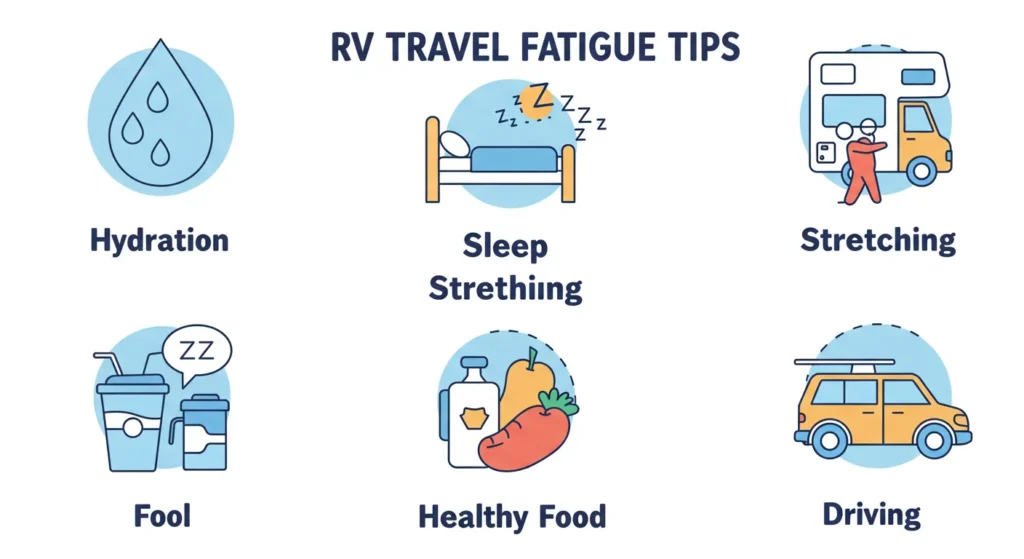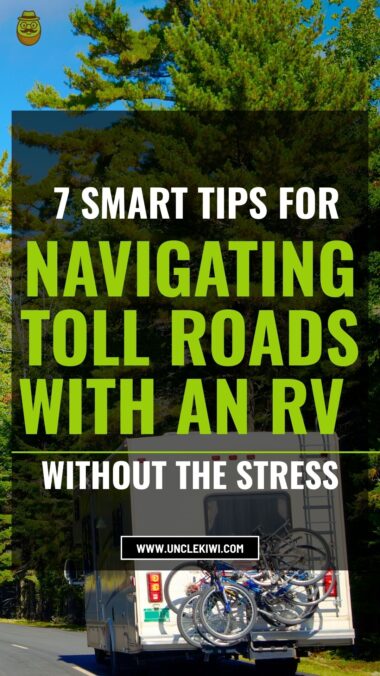11 Practical Ways to Overcome Travel Fatigue in an RV
Travel fatigue while RVing feels different than traditional travel tiredness. You’re constantly on the move, handling long drives, cooking in confined spaces, and sometimes battling extreme weather conditions. According to a 2023 study published in Frontiers in Psychology, extended driving periods and disrupted sleep routines significantly reduce mental alertness and emotional well-being during road trips. When you’re behind the wheel of a 30-foot RV, that fatigue isn’t just annoying — it’s dangerous.
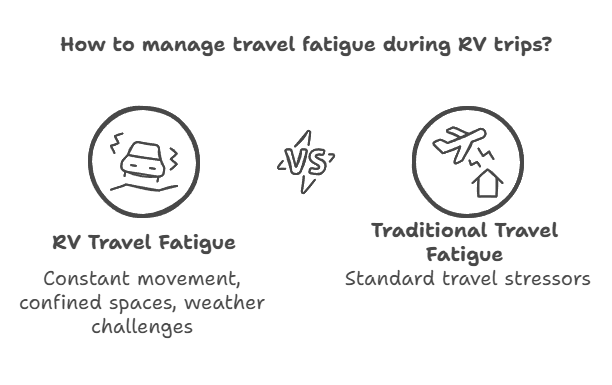
If you’re planning a cross-country RV trip or already knee-deep in one, you need strategies to stay refreshed, focused, and full of energy. Below are 11 proven methods that RV travelers use to beat travel fatigue — with tips tailored to life on the road.

How Can You Set a Manageable Driving Schedule?
Planning a realistic schedule helps reduce physical and mental burnout.
Drive no more than 300 miles per day or 4-5 hours behind the wheel. According to AAA, fatigue-related crashes often occur during long drives where rest breaks are ignored. Make time for breaks every two hours to stretch, walk, and hydrate.
Benefits of a Flexible Itinerary:
- Reduces pressure to rush
- Allows spontaneous detours
- Supports mental clarity and enjoyment
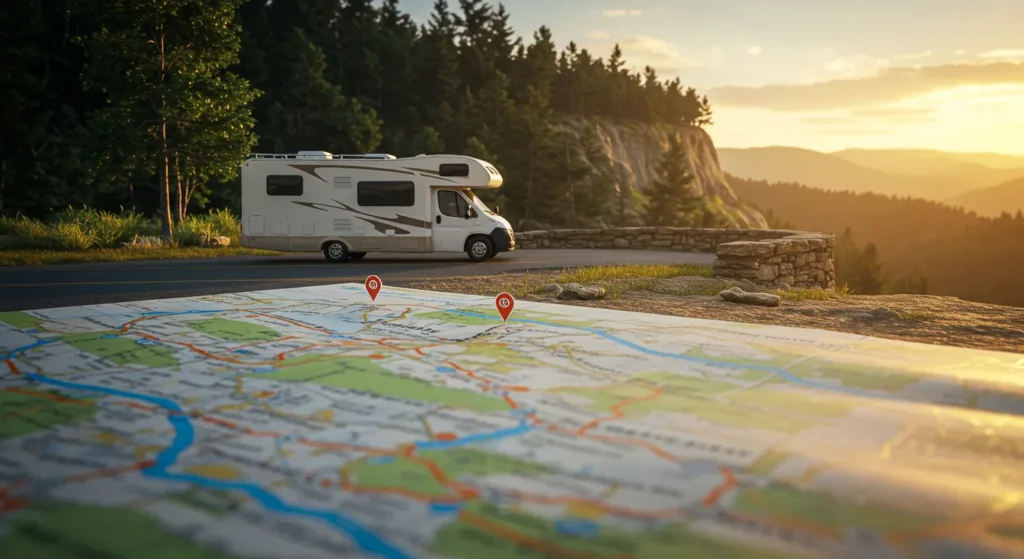
What Sleep Hygiene Habits Work Best in an RV?
A consistent sleep schedule can prevent chronic exhaustion.
Invest in blackout shades to block campground lights and city glare. Use white noise machines or apps to mask outside noise. A good-quality mattress topper also makes a big difference. The National Sleep Foundation recommends keeping your sleeping area between 60–67°F for better rest.
Smart Sleep Tips for RVers:
- Avoid caffeine 4–6 hours before bed
- Stick to a consistent bedtime, even on weekends
- Use earplugs or sound apps to block out inconsistent campground noise
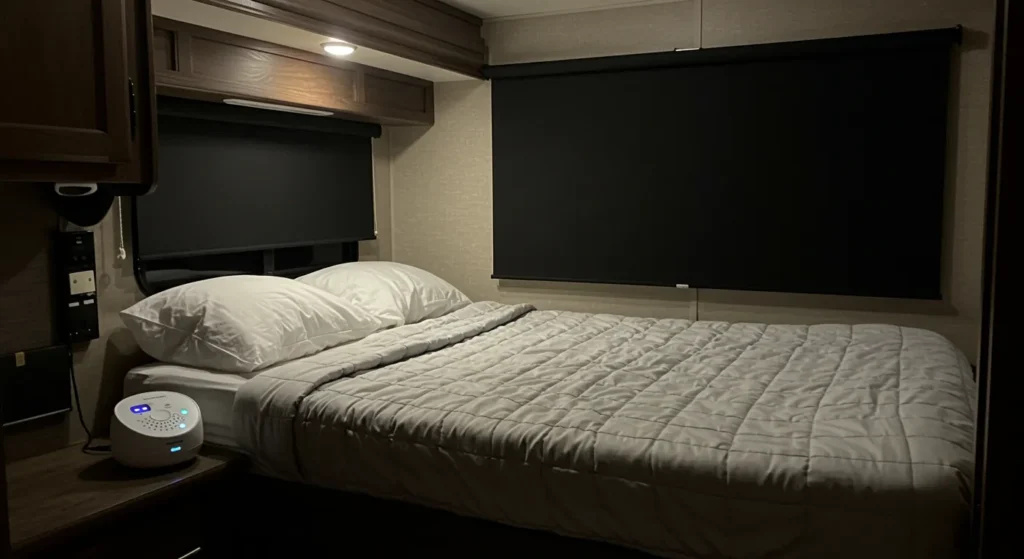
How Important Is Hydration on the Road?
Hydration directly impacts your mood, energy levels, and physical performance.
A study by the US National Academies of Sciences, Engineering, and Medicine recommends 3.7 liters of water daily for men and 2.7 liters for women. In an RV, dehydration is common because people often reduce water intake to avoid bathroom stops.
Stay Hydrated Without Overdoing Pit Stops:
- Use a reusable 1-liter bottle and aim for three refills daily
- Add electrolyte tablets to your water once a day
- Snack on hydrating foods like cucumbers and watermelon
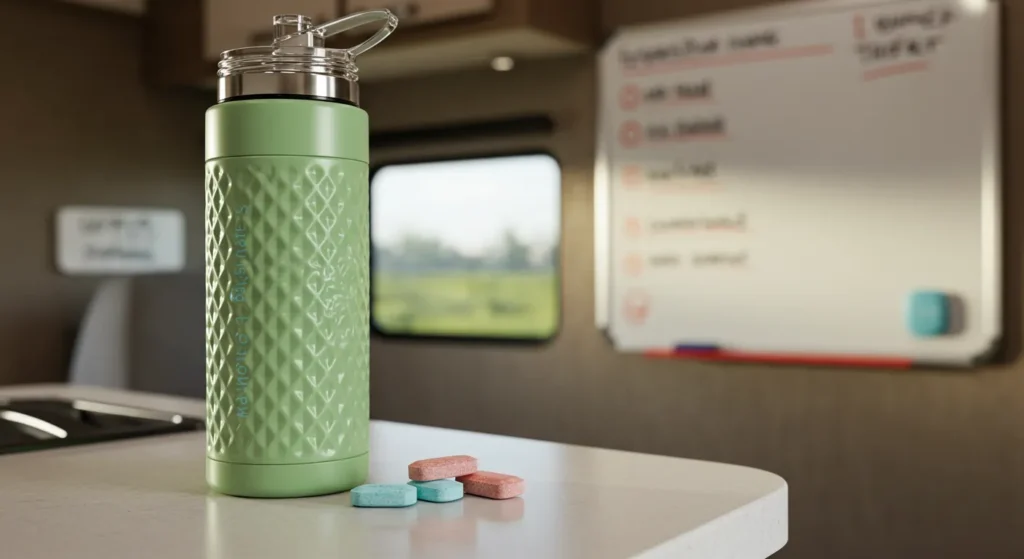
What Role Does Nutrition Play in Combating Fatigue?
A balanced RV-friendly diet can sustain your energy throughout the journey.
Avoid greasy, heavy meals which cause sluggishness. Choose meals with lean protein, fiber-rich vegetables, and complex carbs. Keep healthy snacks like almonds, protein bars, or hummus and carrots easily accessible.
Sample RV Day Meal Plan:
- Breakfast: Greek yogurt with fruit and granola
- Lunch: Whole grain wrap with turkey and spinach
- Dinner: Grilled chicken with quinoa and roasted veggies
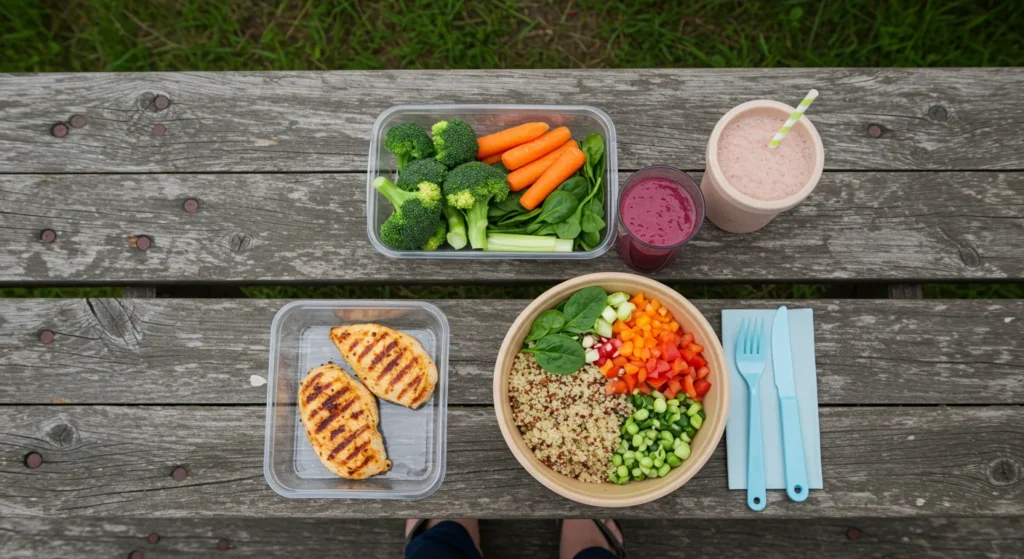
How Can You Exercise Regularly in a Small Space?
Physical movement improves circulation and reduces muscle tension from long drives.
Use resistance bands, do bodyweight exercises, or follow 10-minute yoga routines in your RV or at a rest stop. A 2022 Harvard study found that just 20 minutes of moderate-intensity exercise improves mood and alertness significantly.
Easy RV-Friendly Exercises:
- Standing lunges next to the RV
- Chair squats using your step or picnic bench
- Morning yoga stretches in your living area
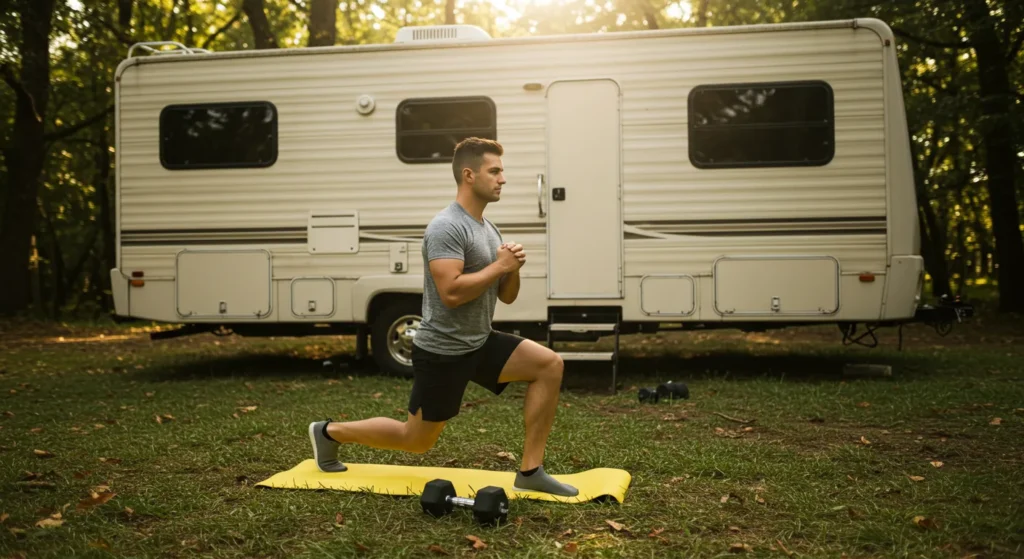
Can Mindfulness and Meditation Ease Mental Fatigue?
Yes — even five minutes of focused breathing reduces stress and improves clarity.
Use free apps like Insight Timer or Calm. Find a quiet space inside or outside your RV and close your eyes. Focused breathing reduces cortisol levels and can even lower blood pressure, as supported by a 2021 American Heart Association study.
Simple RV Mindfulness Routine:
- Sit in a shaded area or recline in your RV
- Breathe in deeply for 4 seconds, hold for 4, and exhale for 4
- Repeat for 5–10 minutes, twice daily
How Does Nature Exposure Restore Energy?
Being surrounded by greenery improves mental health and reduces fatigue.
Even a 15-minute walk in nature can improve focus and energy, according to a 2022 Environmental Research study. Many RV parks are located near forests, lakes, and trails — use them.
Try:
- Morning coffee by a lake
- Sunset walk around your campground
- Stargazing from a folding chair

What Tools Make Driving Less Draining?
Using the right gear can reduce physical strain and increase alertness.
Get an ergonomic seat cushion for lumbar support. Use RV GPS systems to avoid traffic surprises and stressful detours. Anti-glare sunglasses protect your eyes during sunny stretches.
Top Tools for Easier Driving:
- Seat back support
- Gel wrist rest for the steering wheel
- Dash-mounted fan for airflow
How Often Should You Take Extended Rest Days?
You should take a full rest day every 3–5 days of travel.
Use it to stay at one location, explore locally without driving, and recharge. A day of no movement gives your body and mind time to reset, especially if you’ve been logging back-to-back miles.
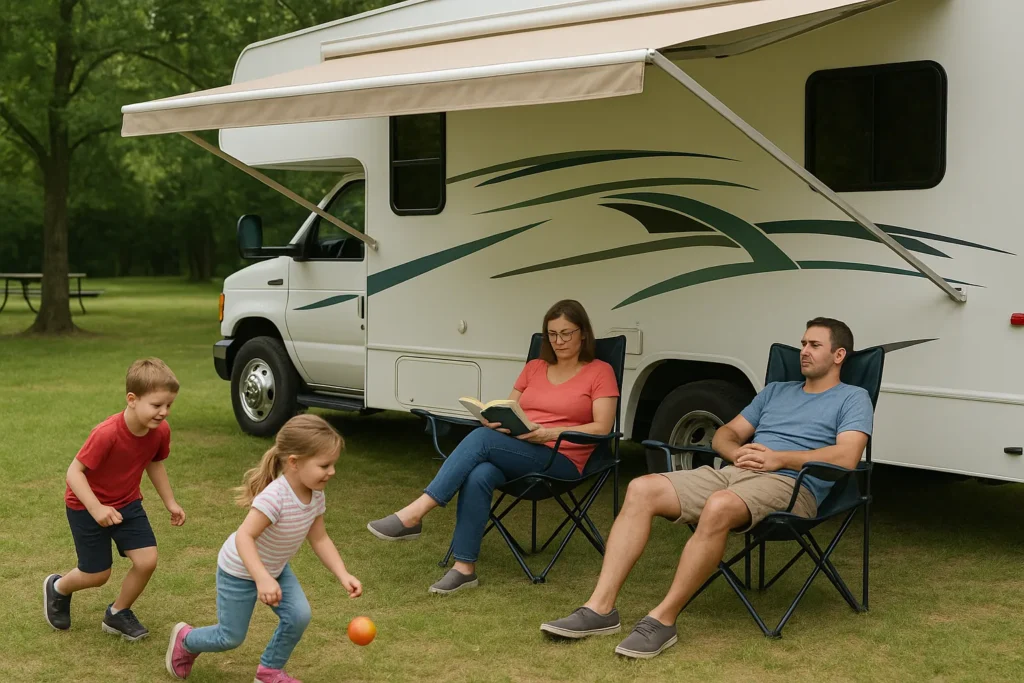
Can Social Interaction Help Reduce Fatigue?
Yes. Isolation increases tiredness and affects mood.
Chat with fellow RVers at campsites or attend events at RV parks. Even virtual calls with family help you stay emotionally balanced.
Ways to Stay Social:
- Join campground potlucks or RV clubs
- Schedule weekly check-ins with family via video
- Use apps like Meetup to find local gatherings
How Do You Know When It’s Time to Stop Driving?
Listen to your body. Warning signs include eye strain, yawning frequently, or zoning out.
Use the “Rule of Three”: if you yawn three times in a span of 15 minutes, it’s time to pull over. Fatigue increases reaction time and reduces decision-making accuracy — a risk not worth taking.
Summary and Final Thoughts
RV travel should be energizing, not exhausting. By managing your schedule, eating well, staying hydrated, and incorporating mindful routines, you can enjoy the freedom of the open road without burning out. Treat travel fatigue seriously — and your body will thank you.
